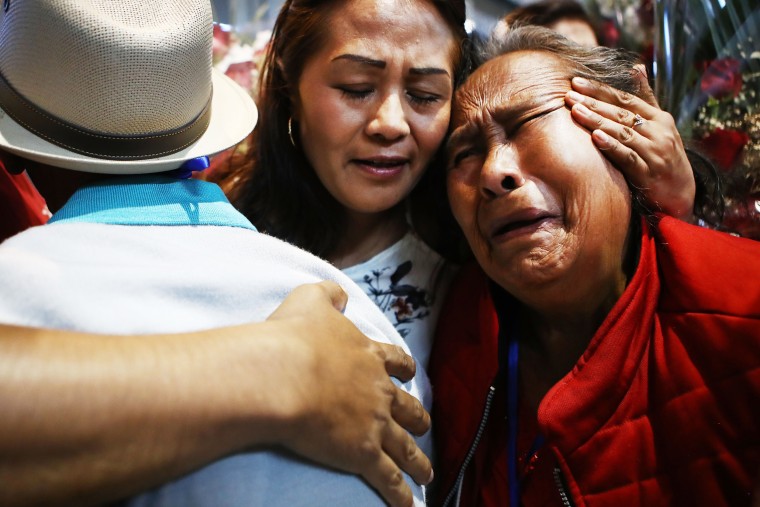WASHINGTON — While only four families separated by the Trump administration will be reunited this week, lawyers representing other families say they are “hopeful” that soon more than 1,000 will be on the path not just to reunification but to be able to live with their children permanently in the U.S.
Those families are represented in a federal lawsuit, known as the Ms. L case, that began under Trump and is in the process of being settled with the Biden administration.
The lead attorney for the ACLU in the case, Lee Gelernt, said that while he wished the Biden administration had acted more quickly to reunify families, it is “acting in good faith.”
“The ACLU is in settlement negotiations with the Biden administration to provide full relief to the thousands of separated families, not just reunification in the U.S. but permanent status, compensation and social services,” Gelernt told NBC News.
“We are hopeful this will get done," he added. "And we will continue to pressure the Biden administration to move as quickly as possible.”
A spokesperson for the Department of Homeland Security, where Secretary Alejandro Mayorkas heads the task force for reunifying families, said the task force is developing a system to provide “stability” for separated families.
“The Task Force is actively working to develop a system for processing and reunifying over a thousand families and to set up a system to provide mental health support and stability to thousands more families who are here in the United States and still trying to heal from the trauma caused by their separation,” said the spokesperson. “This is only the beginning, and the government cannot do this work alone. We are committed to working with the private sector and with the NGOs, attorneys, and advocates who have done tremendous work in support of these families.”
Advocates for the families are seeking to have them reunited inside the U.S., provided with compensation and social services, and granted permanent legal status to remain in the U.S.
The DHS spokesperson did not address whether the Biden administration’s system for providing “stability” would incorporate any of these specific measures. As a matter of policy, government agencies do not typically comment on the specifics of pending litigation.

Gelernt and a team of pro bono lawyers known as the “steering committee” were appointed by a federal judge from the Southern District of California overseeing the Ms. L case to find and reunify families separated under the Trump administration. From April 2017 until June 20, 2018, more than 5,500 families were separated by Border Patrol officials so that parents would be taken into U.S. Marshals custody and prosecuted for crossing illegally while their children were sent to Health and Human Services custody.
While the majority of those separated under the official “zero tolerance” policy in May and June of 2018 were reunified under a court order in the Ms. L case, those separated in 2017 were not known about until long after they were separated, making it harder for lawyers to track them down and reunite parents and children. In the majority of cases, the lawyers say, the parents were deported while their children remained in the U.S.
“The key will be that the Biden administration stays the course because there is a lot to do,” said Gelernt. “It is one thing to get a few families back, but a whole other thing to scale up the process so it works smoothly for more than 1,000 families who remain separated, not to mention getting benefits for the thousands of others who need them.”
